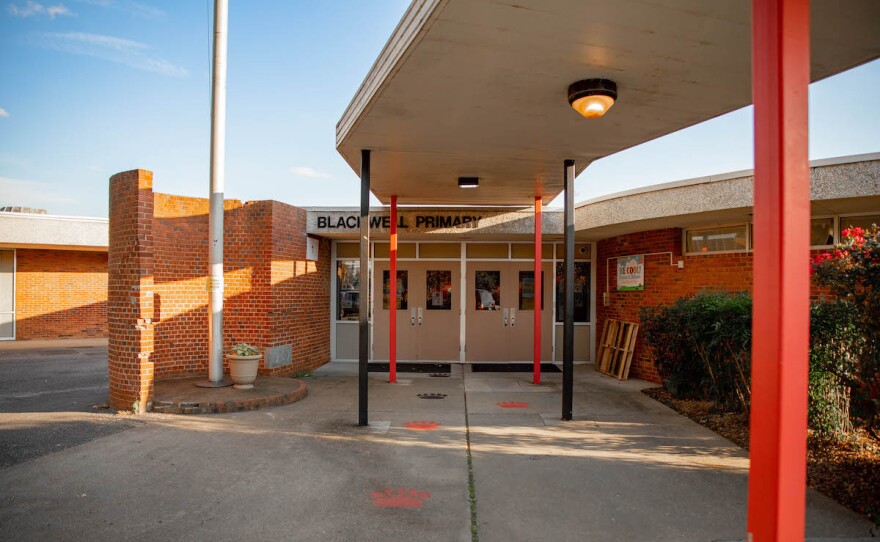Richmond City Council is expected to approve more than $600,000 in grants on Monday evening for preschool programs run by several organizations in the city, utilizing funding from the American Rescue Plan Act. The funds will primarily help preschool centers hire and retain staff, as well as open additional preschool classrooms.
Grant recipients include: the Fulton Montessori School, Greater Richmond SCAN, St. James’s Children’s Center, Friends Association for Children Endowment Fund Inc., the YWCA Richmond and the YMCA of Greater Richmond.
The YMCA of Greater Richmond will also open two new full-day preschool centers on Richmond’s Southside with the grant funds — one at the Life Church RVA and another at Liberation Church. Registration for these programs is currently open, with a start date of Aug. 29.
“We recognize that working families need that full-day care,” said Eva Colen, senior policy advisor and manager of Richmond’s Office of Children and Families.
The YMCA will also run two preschool after-care programs at Summer Hill Preschool and Mary Scott Preschool next year, funded by the Robins Foundation. This is the first year that the YMCA will provide aftercare at these locations, according to Betsy Peters, senior vice president of youth development at the YMCA of Greater Richmond.
The city is planning to use additional ARPA dollars to match grant funding for aftercare at those two preschools, according to Colen. And Richmond Public Schools will use some of its own COVID-19 relief funds to pay for preschool aftercare at Blackwell Preschool, Martin Luther King, Jr. Preschool and Maymont Preschool.
Last year, RPS preschool programs ended at 2:45 p.m., and this year they’re proposing ending the programs an hour earlier at 1:45 p.m. A vote on the change in hours is expected at the next school board meeting, which is set for Aug. 1.
Either way, Colen said that schedule poses a challenge for working parents. It’s a perspective she’s heard from the community in recent years, and it’s why the city has decided to use COVID-19 relief funds to help pay for aftercare until 6 p.m.
“That's something that came out a lot, is that families — despite eligibility — may or may not choose RPS [for preschool] … and the hours are part of that,” Colen said. “I don't know how working families can just pop out in the middle of the afternoon to pick up kids; that boggles my mind.”
Nationally, there’s a growing shortage of after-care options for children. According to a report from the Afterschool Alliance, “for every child in an after-school program, three are waiting to get in.”
As a result, Richmond isn’t the only city using federal COVID-19 stimulus dollars to beef up summer and after-school programming for youth; about one-third of districts across the country are spending a significant portion of these dollars on after-school programming, according to Phyllis Jordan, associate director for FutureEd, a think tank at Georgetown University’s McCourt School of Public Policy.
“It’s one of the top categories if we looked at [relief spending on] academic recovery,” Jordan said, with spending on after-school programming a close second behind summer-school programming. Richmond Public Schools also has spent $1 million on summer-school programs, according to an audit of COVID-19 relief spending presented Monday.
“I think a lot of what's driving this is the realization that kids need more time on task, they lost out a lot of time in remote learning, they lost a lot of structure. By providing this after-school program, you're not only providing parents some childcare … you're providing more structure to the student and more time for learning,” Jordan said.
Sustaining after-care funding
Richmond school board members recognized the significance of after-care programs in public education at Monday’s meeting.
“It’s especially important that we complete audits and trim fat, and make sure that our money is funding our most critical needs. And I see that after-school care is one of those critical needs,” said board member Stephanie Rizzi. “We need to go through and carefully look at how we're spending money before that federal money runs out.”
Colen said funding for aftercare is an important part of a study the city is doing to understand the true cost of providing universal pre-K in the city. The city has contracted with the group Children’s Funding Project to look at the issue and is scheduled to report back next year.
“One of the cost drivers that we're asking them to look at is that gap closure time,” Colen said. “To say: from 1:45 or 2:45 until 6 p.m., how much would that cost for us to provide on the city’s side to cover the revenue gap to provide care?”
She recognized that RPS will face a fiscal cliff for three of its preschool after-care sites when the district’s COVID-19 funds run out; localities must use those funds by September 2024.
“So, if [RPS] can't afford to do that long-term or offer [preschool aftercare] for free to families, we want to make sure we're considering that as a possible cost driver,” Colen said.
Jordan, who has looked at how Richmond plans to spend its most recent round of COVID-19 relief funds, was impressed with the school district’s focus on literacy initiatives in a plan the district submitted to the Virginia Department of Education last summer.
She said the combination of after-school programming and its focus on literacy will hopefully help improve literacy rates; more than 60% of the district’s students in kindergarten through second grade were reading below grade level in the 2020-21 school year.
“This is a chance to prove what they can do with the right resources,” Jordan said. “And if they can prove that and do it right, it's easier to make a case for more money in the future.”



